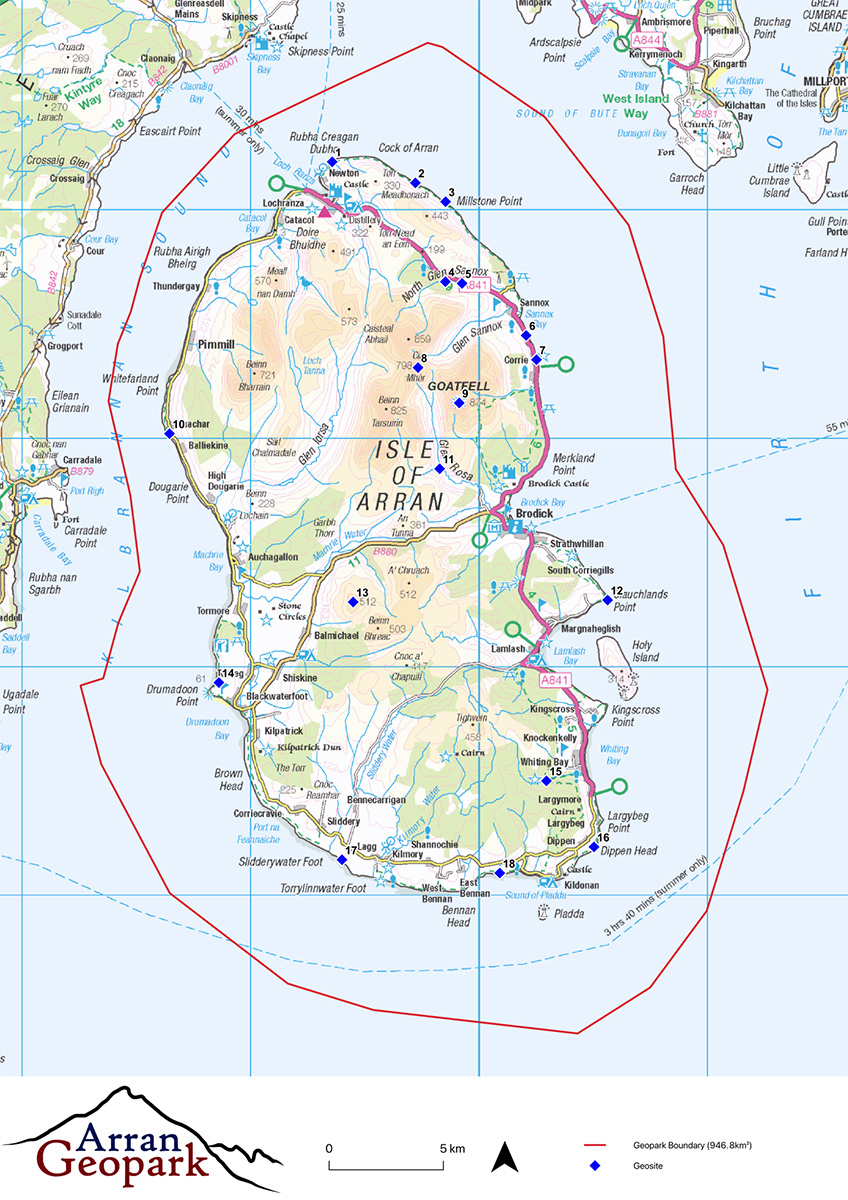In April 2025, Arran was designated as a UNESCO Global Geopark, which is an international standard that recognises landscapes with outstanding geological heritage.
In the UK, 10 sites have been designated as Geoparks, with 3 of the sites being situated in Scotland.
The Geopark includes both terrestrial and marine zones, creating an area that records 600 million years of Earth’s history.
“The island’s remarkable landscape tells a story of tectonic plate collisions, the shifting of continents from the southern hemisphere, the opening of the Atlantic Ocean and the sculpting of alpine mountains by glaciers.
Arran is a place where the ancient forces of nature are still visible in the dramatic cliffs, smooth beaches and rugged landscapes. The island’s ecosystems support species like the Arran whitebeam, one of the world’s rarest and most endangered tree species, which has existed on the island since the last glaciers retreated. Over 156 bird species and more than 1,000 plant species thrive here, making Arran a haven for nature enthusiasts.”
The Geopark itself is managed by a volunteer board and is a Registered Scottish Charitable Organisation with the following goals:
- To conserve and enhance the geological, geomorphological and other heritage of the area;
- To promote the Geopark as an area for scientific study and research in the various disciplines of the Earth Sciences;
- To promote the understanding and enjoyment (including enjoyment in the form of recreation) of the special qualities of the area by the public;
- To promote sustainable economic and social development of the area’s communities in harmony with its natural resources;
- To manage the Geopark within the framework established by the Global Geoparks Network Charter under the umbrella of UNESCO.
Videos About the Geopark
Further Reading
Official Arran Geopark Website
Arran formerly announced as the 10th UNESCO Global Geopark in the United Kingdom – At UNESCO.org.uk
Isle of Arran announced as UNESCO Global Geopark – At British Geological Survey
